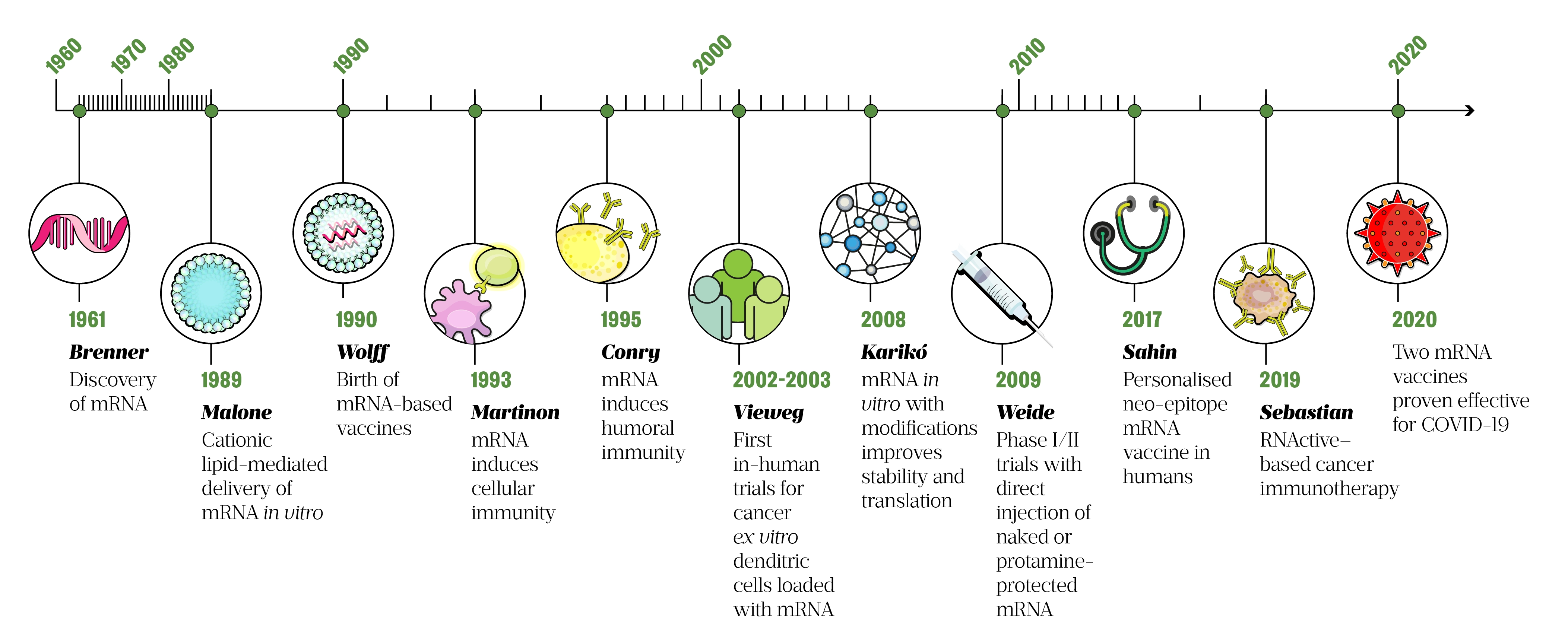What is mRNA Vaccine Technology?

mRNA (messenger RNA) vaccine technology is a type of vaccine that uses a piece of genetic material called messenger RNA to instruct cells in the body to produce a specific protein. This protein is then recognized by the immune system as foreign, triggering an immune response that prepares the body to fight against future infections. The mRNA molecule is designed to encode for a specific protein, such as a viral protein, and is delivered to cells through a lipid nanoparticle (LNP) or other delivery systems.
How Does mRNA Vaccine Technology Work?
The working mechanism of mRNA vaccine technology involves several steps:
- Design and Synthesis: The first step involves designing and synthesizing the mRNA molecule that encodes for the desired protein. This is done using specialized software and laboratory equipment.
- Delivery: The synthesized mRNA molecule is then encapsulated in a lipid nanoparticle (LNP) or other delivery systems, which protects the mRNA from degradation and facilitates its entry into cells.
- Cell Uptake: The LNP-containing mRNA is administered to the individual, typically through injection. The LNP is taken up by cells, such as dendritic cells or muscle cells, through a process called endocytosis.
- mRNA Translation: Once inside the cell, the mRNA molecule is released from the LNP and translated into the desired protein by the cell’s ribosomes.
- Immune Response: The produced protein is then recognized by the immune system as foreign, triggering an immune response that involves the activation of immune cells, such as T-cells and B-cells.
- Immune Memory: The immune system retains a "memory" of the protein, allowing it to mount a rapid and effective response if the individual is exposed to the same protein in the future.
Advantages of mRNA Vaccine Technology
mRNA vaccine technology offers several advantages over traditional vaccine approaches:
- Speed: mRNA vaccines can be developed and manufactured quickly, making them ideal for responding to emerging diseases.
- Flexibility: mRNA vaccines can be easily modified to target different diseases or strains, reducing the need for new clinical trials.
- Safety: mRNA vaccines do not use live viruses or bacteria, reducing the risk of infection or adverse reactions.
- Immunogenicity: mRNA vaccines can stimulate a strong immune response, providing protection against infection.
- Scalability: mRNA vaccines can be manufactured on a large scale, making them suitable for widespread use.
Applications of mRNA Vaccine Technology
mRNA vaccine technology has been explored for various applications, including:
- Influenza: mRNA vaccines have been developed to protect against seasonal and pandemic influenza.
- COVID-19: mRNA vaccines have been used to develop COVID-19 vaccines, such as the Pfizer-BioNTech and Moderna vaccines.
- Cancer: mRNA vaccines are being investigated as a potential treatment for cancer, aiming to stimulate an immune response against tumor cells.
- HIV: mRNA vaccines are being explored as a potential approach to prevent HIV infection.
Challenges and Limitations
While mRNA vaccine technology holds immense promise, there are several challenges and limitations that need to be addressed:
- Stability: mRNA molecules are inherently unstable and require specialized storage and handling procedures.
- Delivery: The delivery of mRNA molecules to cells can be inefficient, reducing the efficacy of the vaccine.
- Immune Response: The immune response elicited by mRNA vaccines can vary depending on the individual and the disease being targeted.
- Regulatory Framework: The regulatory framework for mRNA vaccines is still evolving and requires further development.
FAQs
- What is the difference between mRNA and traditional vaccines?
mRNA vaccines use a piece of genetic material to instruct cells to produce a specific protein, whereas traditional vaccines use live or inactivated viruses or bacteria to stimulate an immune response. - Are mRNA vaccines safe?
mRNA vaccines have been shown to be safe and well-tolerated in clinical trials, with minimal adverse reactions. - Can mRNA vaccines be used to treat diseases other than COVID-19?
Yes, mRNA vaccines are being explored for various applications, including influenza, cancer, and HIV. - How long do mRNA vaccines provide protection?
The duration of protection provided by mRNA vaccines is still being studied, but preliminary data suggest that they can provide long-term immunity. - Can mRNA vaccines be used in combination with other vaccines?
Yes, mRNA vaccines can be used in combination with other vaccines, and this approach is being explored in clinical trials.
Conclusion
mRNA vaccine technology has revolutionized the field of vaccinology, offering a novel approach to immunization that is fast, flexible, and safe. While there are challenges and limitations that need to be addressed, the potential of mRNA vaccines to combat infectious diseases and cancer is immense. As research continues to advance, we can expect to see the development of new mRNA vaccines and the expansion of their applications. Ultimately, mRNA vaccine technology has the potential to transform the way we approach immunization and disease prevention, providing a new era of protection against infectious diseases.
Closure
Thus, we hope this article has provided valuable insights into mRNA vaccine technology. We hope you find this article informative and beneficial. See you in our next article!